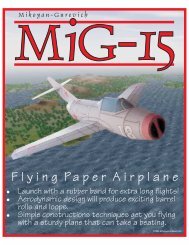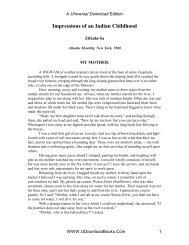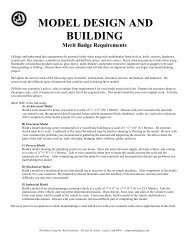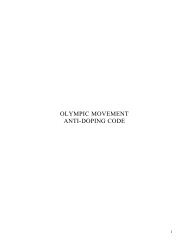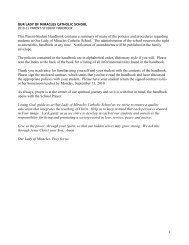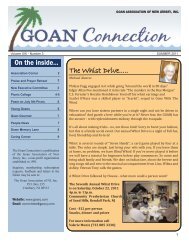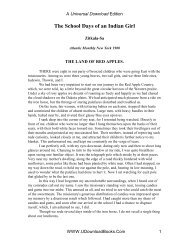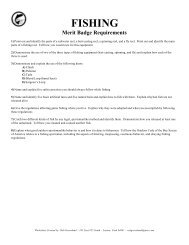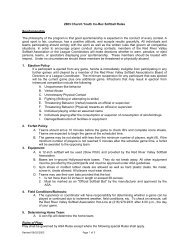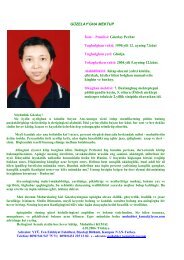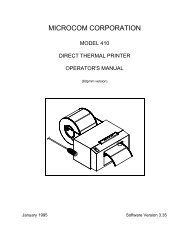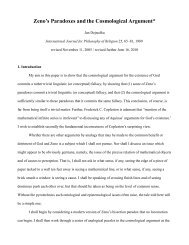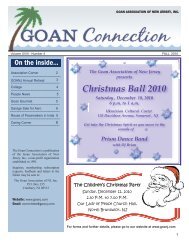Dummett's Backward Road to Frege and to Intuitionism - Tripod
Dummett's Backward Road to Frege and to Intuitionism - Tripod
Dummett's Backward Road to Frege and to Intuitionism - Tripod
You also want an ePaper? Increase the reach of your titles
YUMPU automatically turns print PDFs into web optimized ePapers that Google loves.
thought in sense (2). And although that thought reflects or mirrors the essence of concepts (my 2003:<br />
xix, 31, 217, 272, 301), it is only one way of many <strong>to</strong> present the truth-condition in question. Thus<br />
there is no backward road from the truth-condition <strong>to</strong> it.<br />
Certainly we do not underst<strong>and</strong> the thoughts expressed by statements if we have no idea of the<br />
conditions which would make them true or false. But those very thoughts of the truth-conditions are<br />
intensional in sense (2), <strong>and</strong> the truth-conditions are graspable only via such thoughts. Indeed, the<br />
thought we grasp is the “idea” we have of the truth-condition.<br />
One might be tempted <strong>to</strong> say that where “F( )” expresses the sense ‘( ) is red’, the truth<br />
condition of “Fa” is a’s being red. That is what most of us would say. But can <strong>Frege</strong> say it? Our world<br />
of four objects shows that for <strong>Frege</strong>, the on<strong>to</strong>logical locus of objective redness as opposed <strong>to</strong> objective<br />
roundness is the realm of sense. And as this is a categorial matter, this is so in every possible world. Is<br />
the on<strong>to</strong>logical locus of the truth-condition of “Fa” then the realm of sense? Is it senses, not references,<br />
which make our sentences true? Except for cases of indirect reference, no. 12<br />
If we enrich L so as <strong>to</strong> include sentences expressing propositional attitudes, then thoughts<br />
would be logical parts of the truth-conditions of L, since thoughts are the indirect references of such<br />
sentences for <strong>Frege</strong>. And while only thoughts can be believed, <strong>and</strong> subsentential senses cannot be<br />
believed, presumably the subsentential senses composing believed thoughts must also be indirect<br />
references by parity of reason. But Dummett’s procedure would still fail for infinitely many languages<br />
L* which lack such sentences, <strong>and</strong> he gives no indication that he is thinking of this limited way out.<br />
And there is no backward road <strong>to</strong> the indirect senses which occur in cases of indirect reference. We<br />
would have <strong>to</strong> include sentences expressing second-order beliefs about beliefs, so as <strong>to</strong> make first-order<br />
indirect senses in<strong>to</strong> second-order indirect references, <strong>and</strong> so on for any n-level order of beliefs. Thus we<br />
would have <strong>to</strong> admit an infinite series of orders of indirect sense <strong>and</strong> reference. I think <strong>Frege</strong> allows<br />
<strong>and</strong> requires that (Dummett agrees, 1981a: 87). 13 But Dummett’s procedure would fail for infinitely<br />
22



